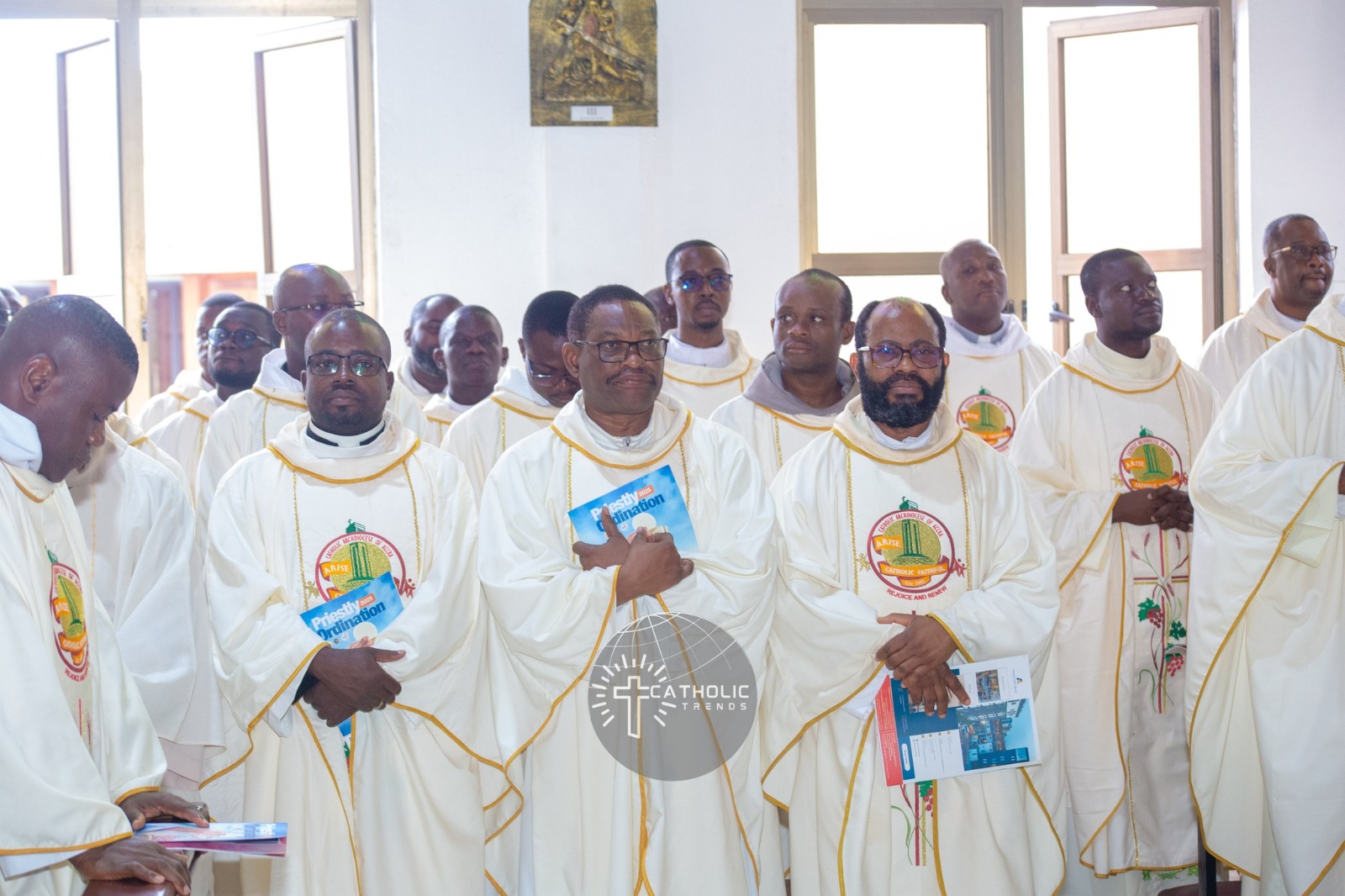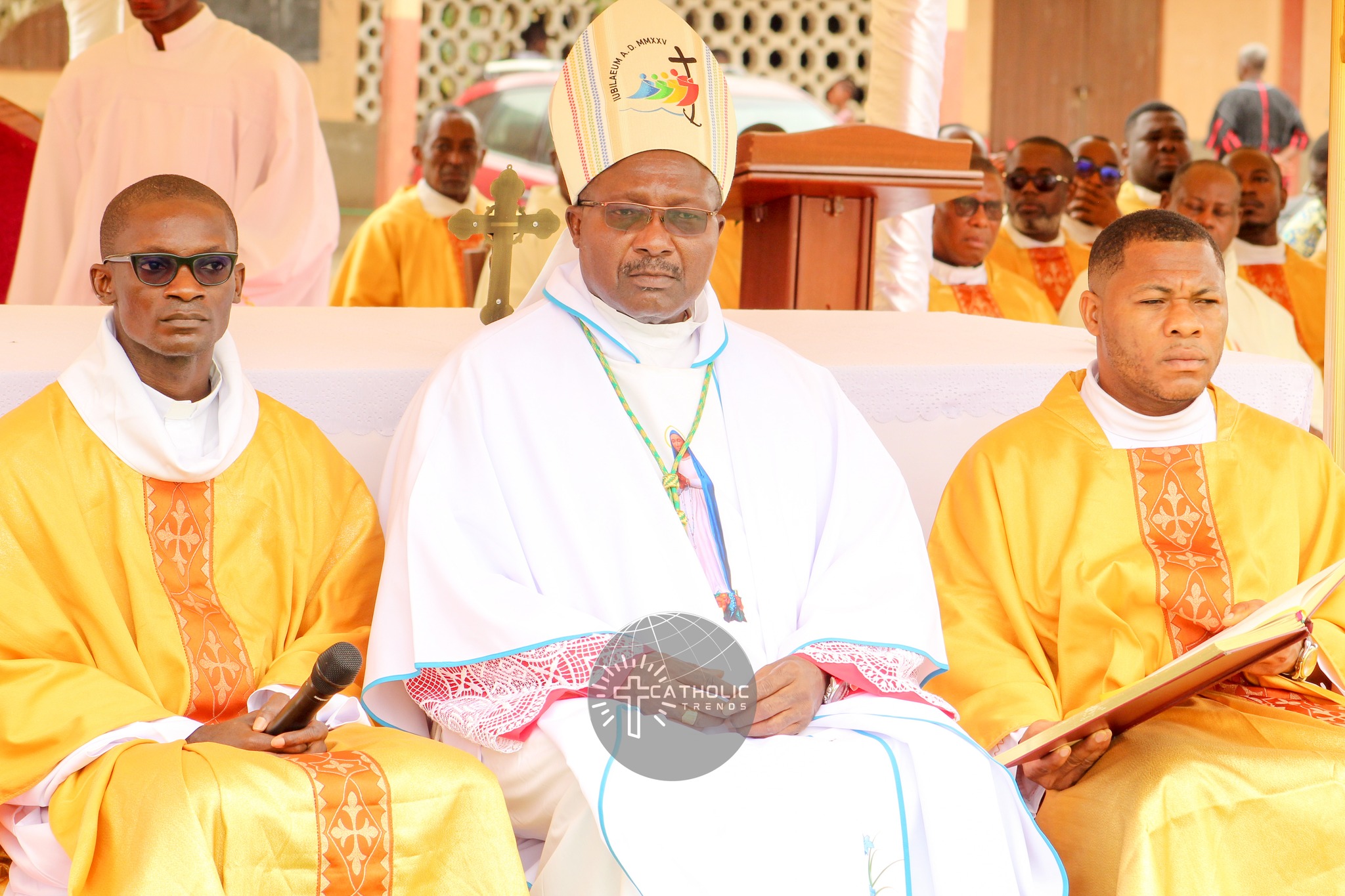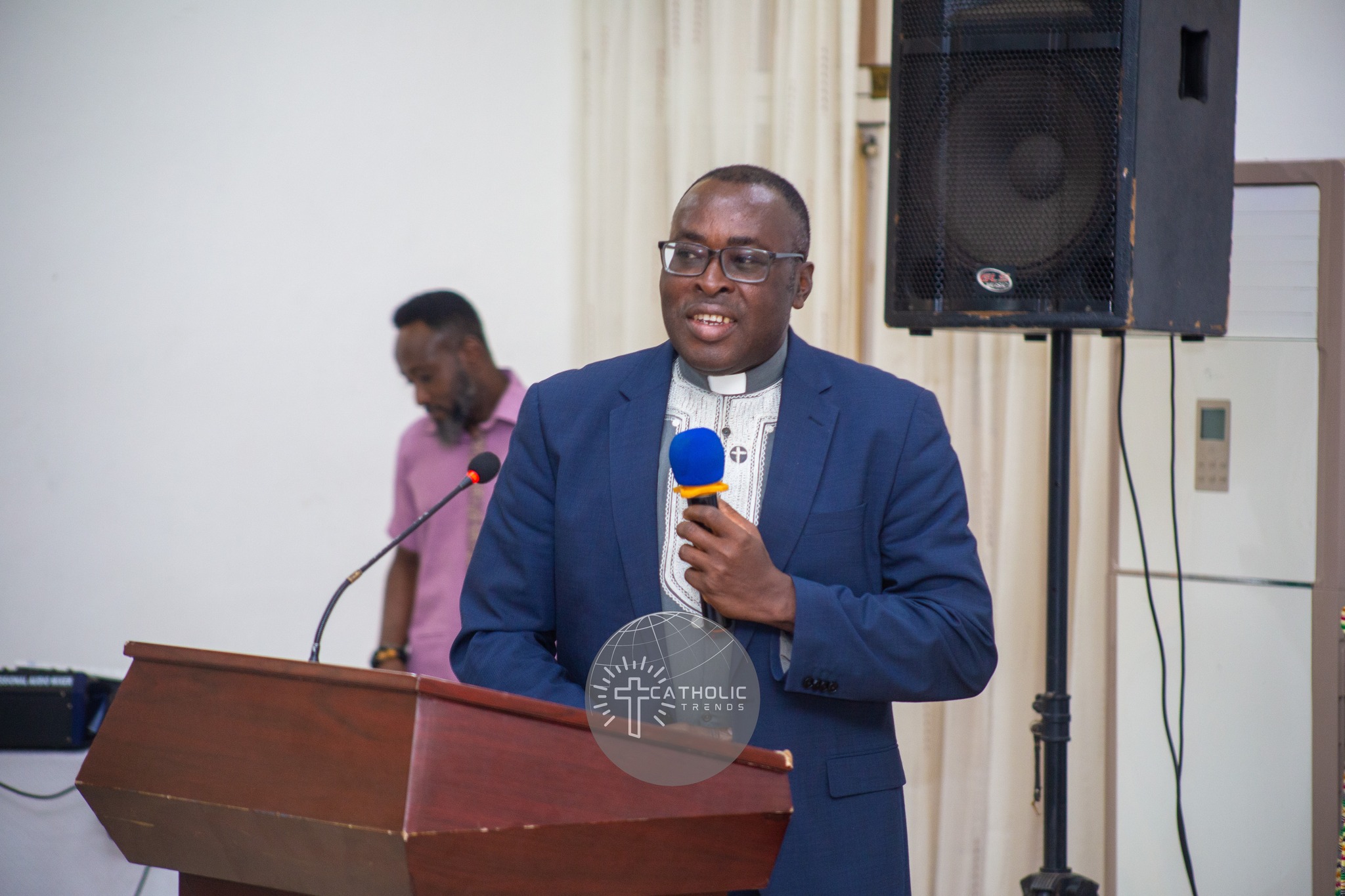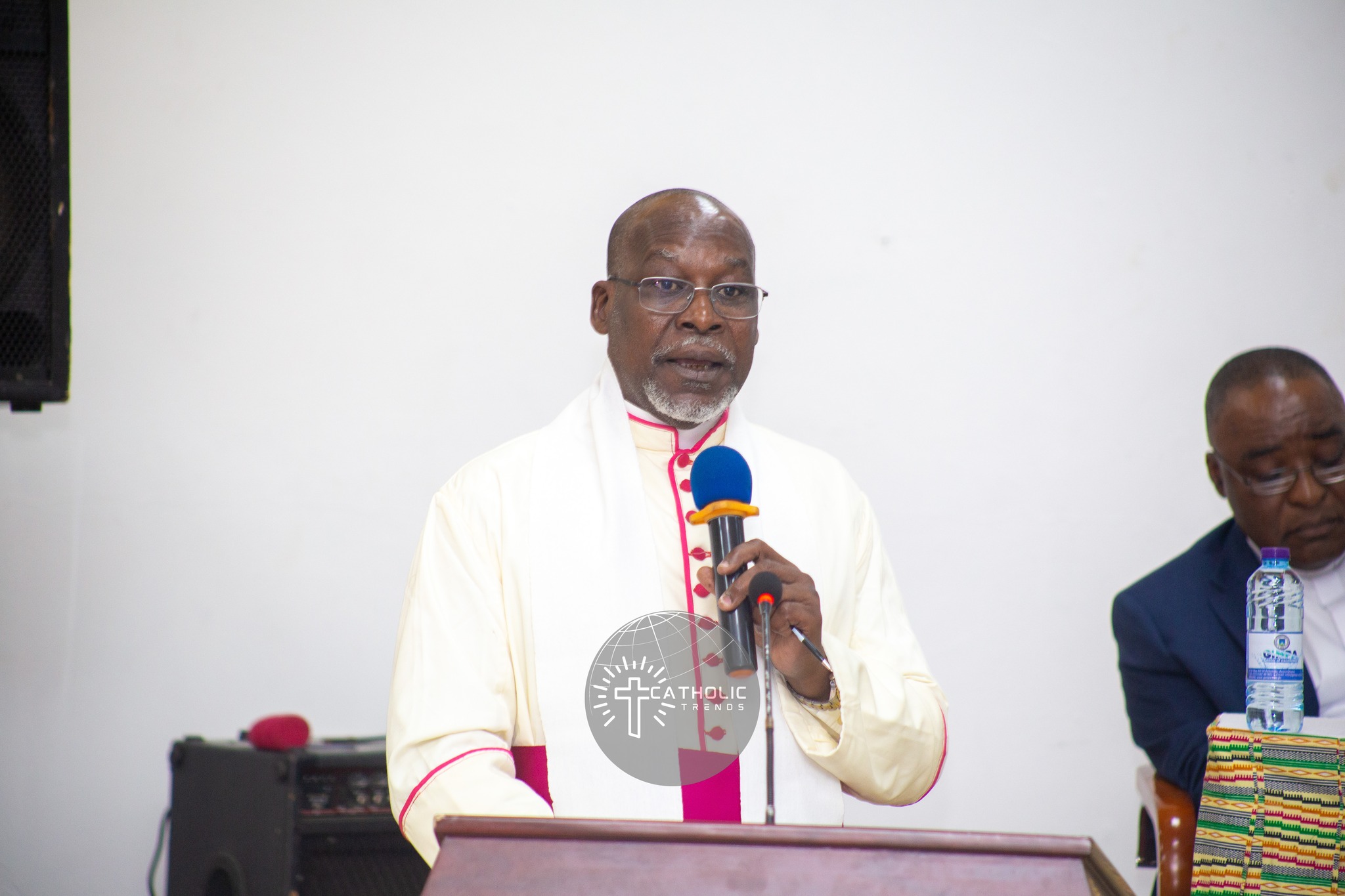Question by Prof. Stephen Adu Bredu, KNUST:
My Lord Bishop, can an evil spirit come from God, as stated in 1 Samuel 19: 8-10?
Answer by Most Rev. Joseph Osei-Bonsu:
1 Samuel 19:9-10 narrates a striking episode in the deteriorating relationship between King Saul and David, highlighting Saul’s descent into jealousy, spiritual disintegration, and violence. The text reads: “Then an evil spirit from the LORD came upon Saul, as he sat in his house with his spear in his hand; and David was playing the lyre. And Saul sought to pin David to the wall with the spear; but he eluded Saul, so that he struck the spear into the wall. And David fled, and escaped” (RSV).
Saul, Israel’s first king, had already been rejected by God for disobedience (1 Samuel 15:23), and “an evil spirit” tormented him (1 Samuel 16:14). Meanwhile, David, the newly anointed future king (1 Samuel 16:13), gained favour after defeating Goliath (1 Samuel 17) and receiving public acclaim (1 Samuel 18:7). When Saul heard the people singing, “Saul has slain his thousands, and David his ten thousands” (1 Samuel 18:7), his jealousy erupted into murderous rage.
We should note the recurrence of Saul’s spear as symbolic of his growing paranoia and the instability of his kingship. The spear represents Saul’s authority twisted into an instrument of destruction. It is no longer a weapon of national defence, but of personal vengeance.
We need to take note of the juxtaposition of Saul’s aggression with David’s calm ministry through music. David’s playing of the lyre, intended to soothe Saul (cf. 1 Sam 16:23), proves ineffective this time, suggesting the worsening of Saul’s condition and the deepening of divine rejection. The failure of music to pacify Saul indicates a shift in the narrative: Saul is now past the point of reconciliation, and David’s life is in imminent danger.
The verb “to pin” (nāḥâ) is used in these verses to suggest impalement. This verse is similar to 1 Sam 18:11, “And Saul had his spear in his hand, and he hurled it, thinking, ‘I’ll pin David to the wall’. But David eluded him twice”. This intensifies the physical threat posed to David and reveals Saul’s unrestrained malice. The act of throwing the spear and missing emphasises not only David’s providential escape but also the impotence of Saul’s violent intentions.
Saul’s repeated attempts to kill David with a spear (first in 18:10-11 and again later) show how persistent his hatred was. This pattern does two important things in the story: (1) it emphasizes Saul’s growing obsession with destroying David, and (2) it builds tension as the conflict between them worsens over time.
Saul’s loss of divine favour manifests in an increasing inability to govern even his own actions, let alone the nation. Further, the setting – “Saul was sitting in his house with his spear in his hand” – evokes an image of a king who is simultaneously idle and dangerous. Saul’s actions – calmly sitting one moment, then suddenly throwing a spear – show his unstable nature.
This is not true leadership, but fear-driven desperation. David’s position as a court musician had placed him close to the king but now renders him vulnerable. His subsequent flight marks a definitive turn in the narrative; from this point on, David becomes a fugitive, and Saul’s reign increasingly spirals into chaos. Against this background, how should we interpret the statement “an evil spirit from the LORD came upon Saul”?
Scholars agree that this brief passage carries profound theological and psychological insights. In order to understand it, let us take note of the following points:
First, linguistic analysis is crucial in this instance. The Hebrew word ra‘ah, often translated as “evil”, is more accurately understood here as “harmful” or “distressing”, without implying moral wrongdoing. Some scholars argue that it refers to Saul’s mental suffering, not moral evil. This view eases concerns about God being the source of evil, and is supported by texts like the Septuagint, which sometimes leaves out “from the Lord” to avoid that issue.
Second, the majority of interpreters affirm that God retains sovereignty over all spiritual forces and thus, while God is not the author of moral evil, he may permit or even commission a distressing spirit as a form of judgment. This interpretation is strongly supported by scholars who compare the situation to the narrative in Job, where God allows Satan limited power for divine purposes. In this context, the “evil spirit” represents a divine agent of turmoil rather than a demonic force acting independently.
Third, there has been longstanding discussion among scholars about the nature of King Saul’s distressing experience described in 1 Samuel. The debate centres on whether his affliction should be understood primarily as a spiritual phenomenon or a psychological condition.
Some interpreters propose a combined approach, suggesting that Saul suffered from both natural mental instability and divine permission of spiritual oppression.
Modern commentators have occasionally attempted retrospective diagnoses using contemporary psychological terminology, suggesting possibilities like bipolar disorder or paranoid schizophrenia – though such clinical frameworks were completely absent from the ancient biblical worldview.
Other scholars maintain a strictly theological interpretation, viewing Saul’s torment as direct spiritual consequences stemming from his moral failures and the withdrawal of God’s favour following his disobedience to Samuel’s prophetic guidance.
The biblical narrative itself seems most concerned with the spiritual dimensions of Saul’s decline rather than providing any systematic analysis of psychological symptoms. This spiritual emphasis aligns with the text’s broader themes about the serious consequences
Fourth, many interpreters note that the loss of the Spirit of the Lord (1 Samuel 16:14) created a spiritual vacuum, making Saul vulnerable to torment. In this light, the “evil spirit” is not merely punishment but also a consequence – a reflection of spiritual degeneration.
In summary, most scholars agree that the “evil spirit from the Lord” represents a harmful influence permitted by God as judgment. This shows God’s control over all forces – even destructive ones – while marking Saul’s spiritual downfall. Importantly, this does not mean that God causes moral evil; rather, Scripture affirms that nothing operates outside his ultimate authority. This balanced view, held by interpreters across history, preserves both the biblical text’s meaning and God’s righteous character.
| For further explanations or enquiries, you may contact the author, Most Rev. Joseph Osei-Bonsu, Emeritus Bishop of Konongo-Mampong, on this number: 0244488904, or on WhatsApp (with the same number). |










![[Article] Beginning Holy Matrimony without the bride and, or the groom? – Part 1](https://catholic-trends.com/wp-content/uploads/2025/05/4.jpg)



![[Reflection] Jubilee Year : Awaken and allow hope to flourish](https://catholic-trends.com/wp-content/uploads/2025/08/Screenshot-2025-08-12-192412.png)



Discussion about this post